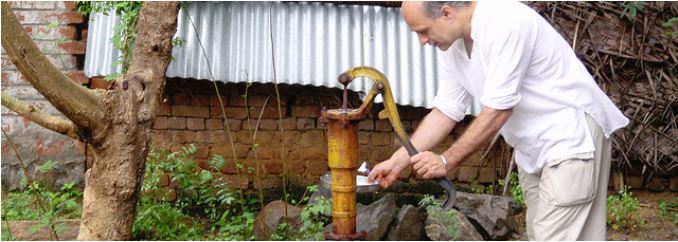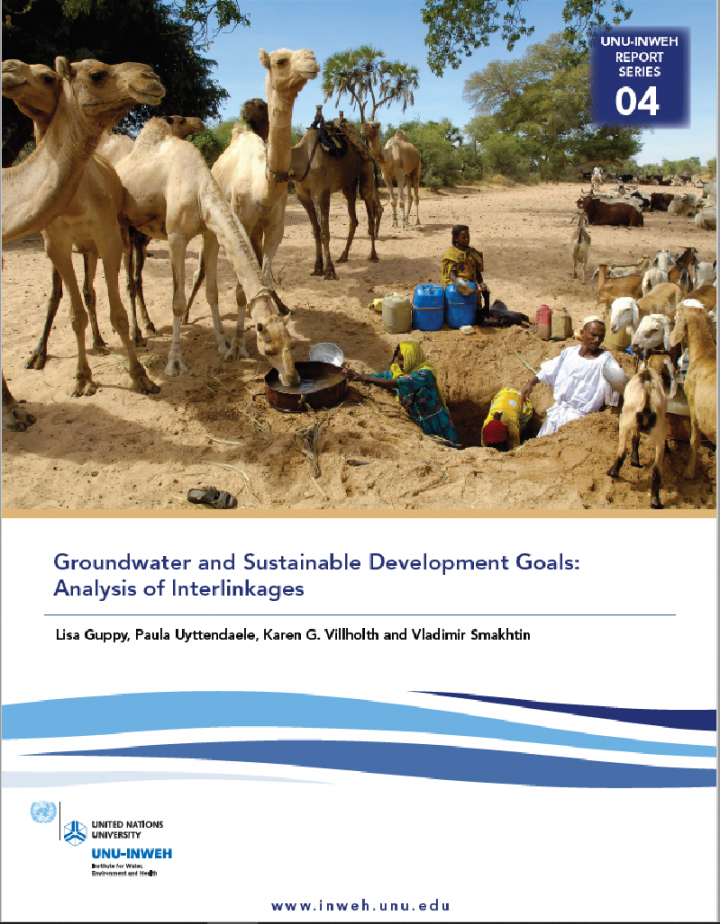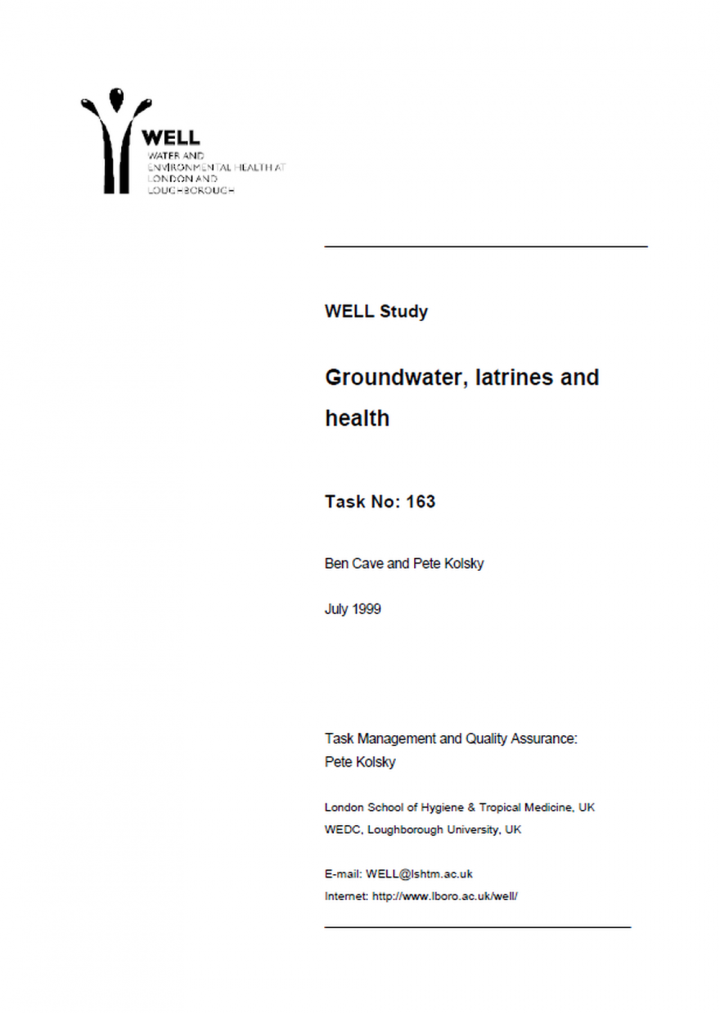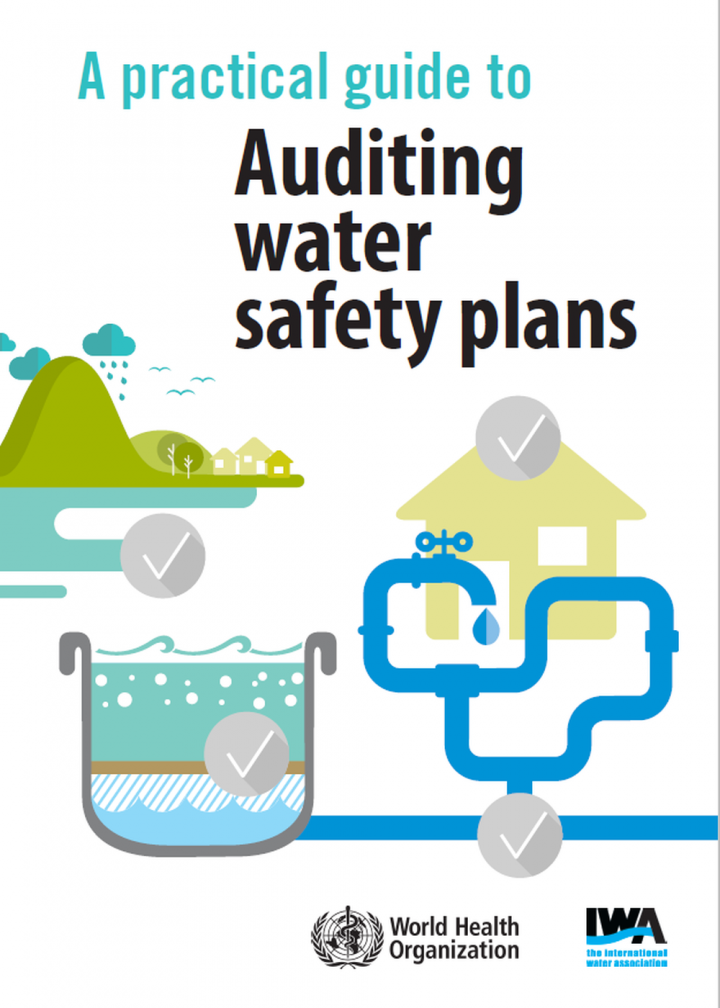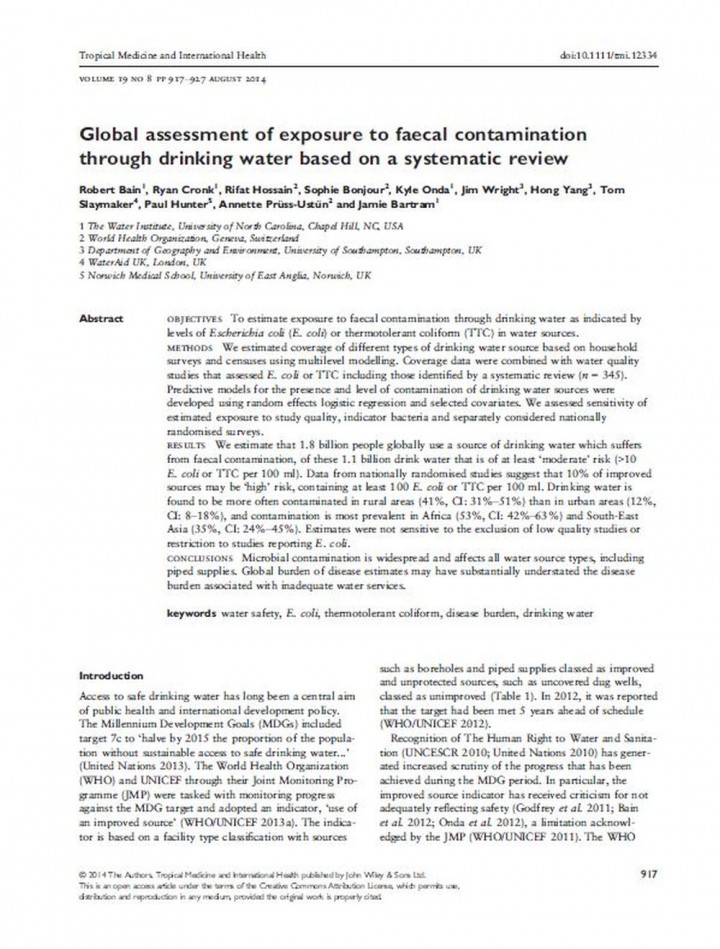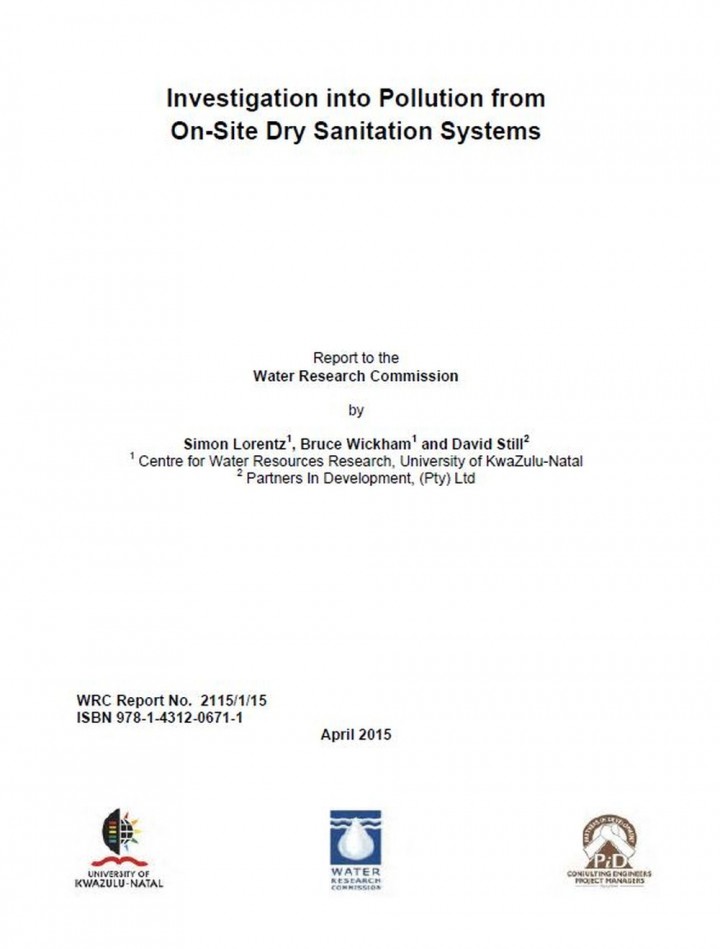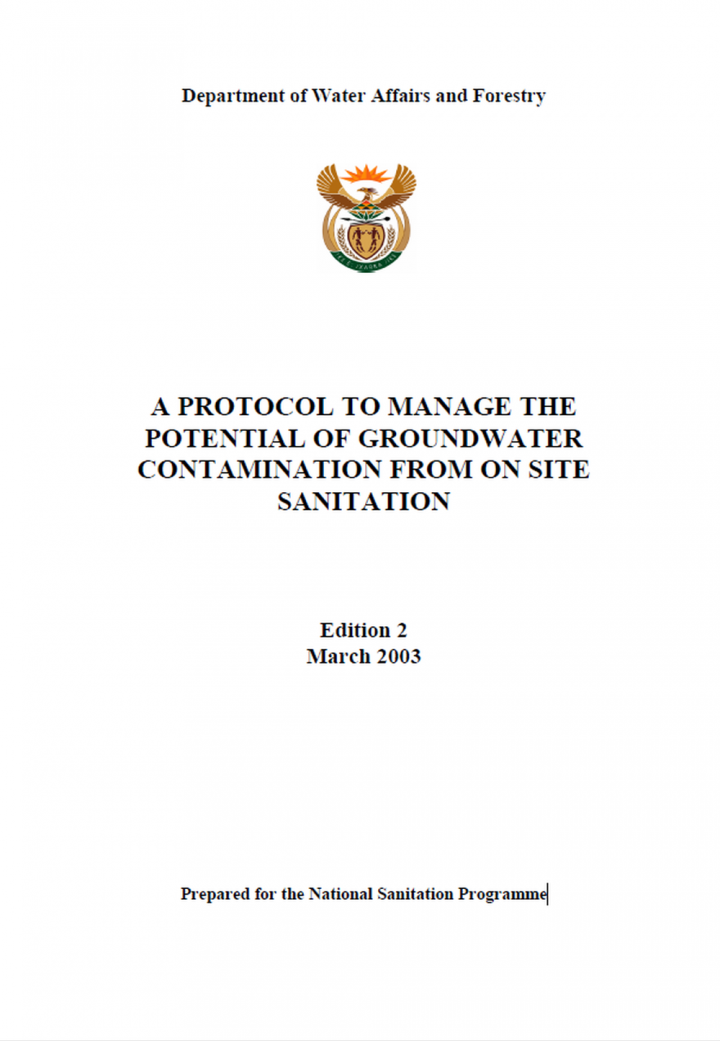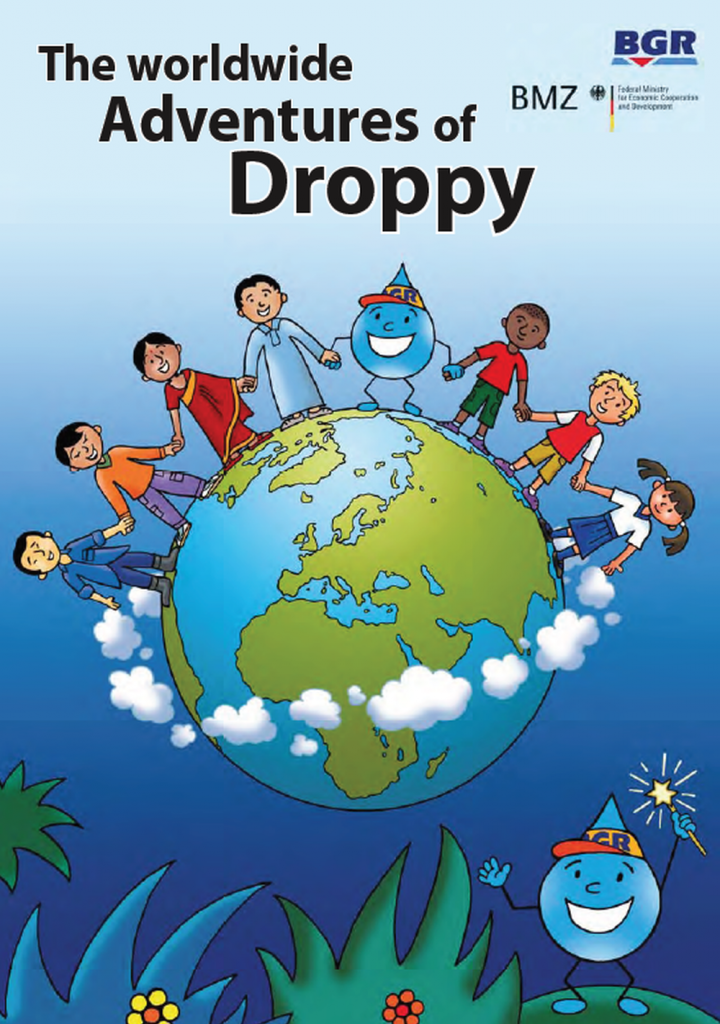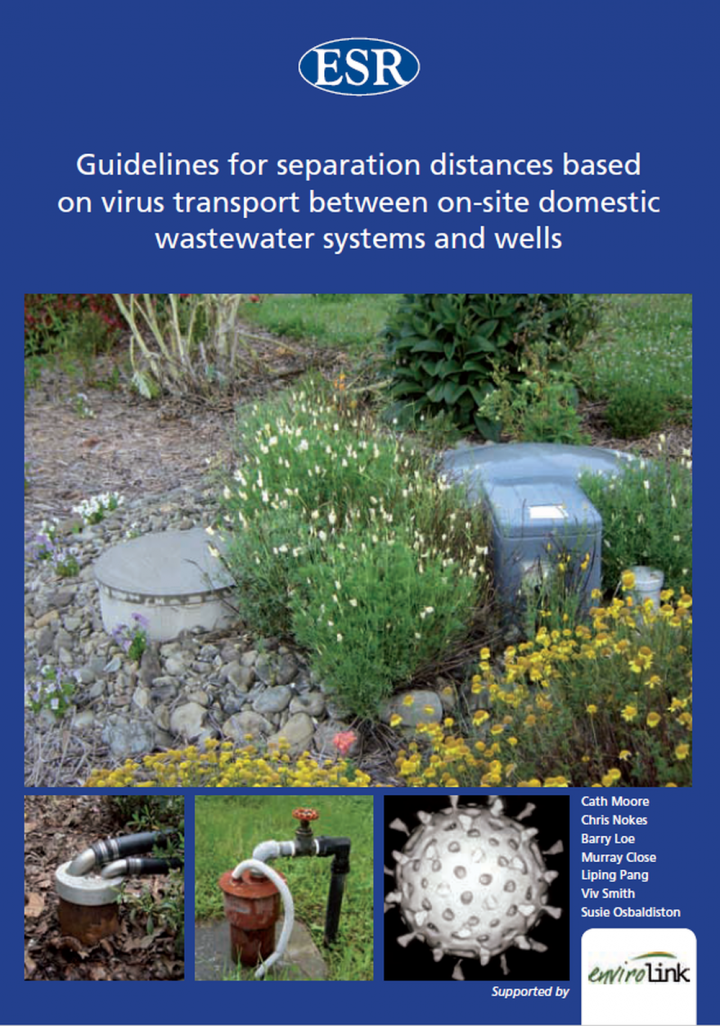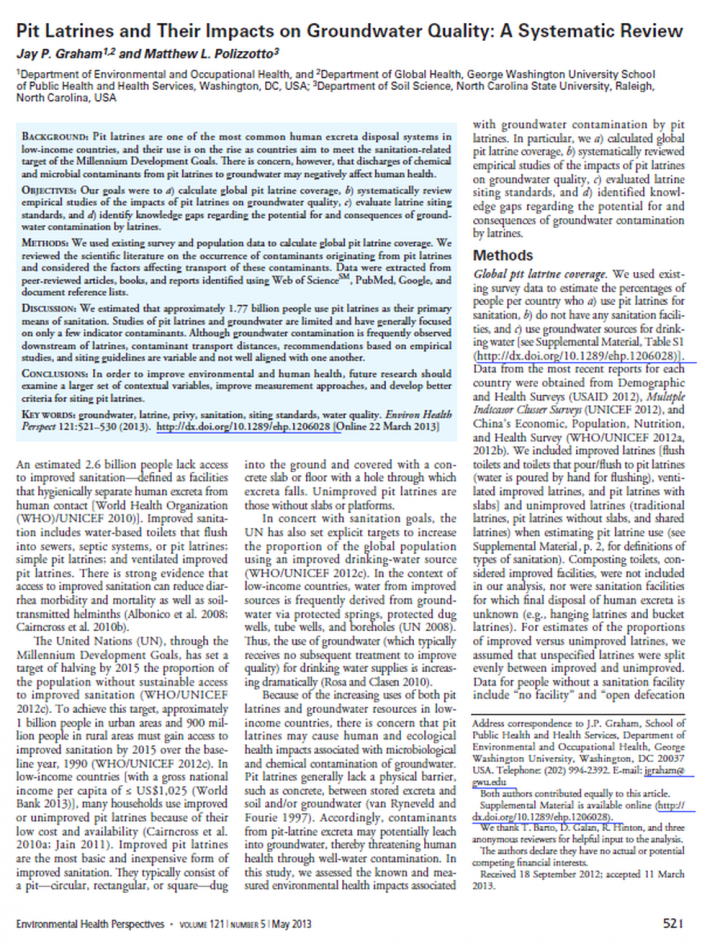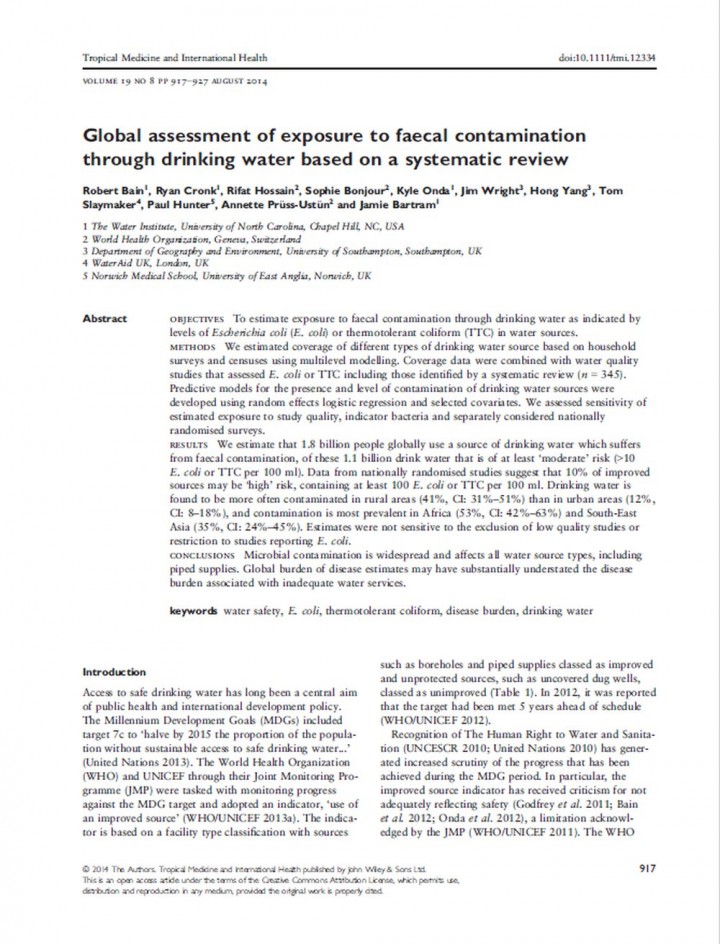The main aim of this working group is to create awareness and formulate recommendations for the protection of groundwater through sustainable sanitation.
Background
More than 2.5 billion people in the world have no access to improved sanitation, which causes an increasing threat to both surface and groundwater resources. Groundwater makes up 97% of the world’s freshwater (excluding inland ice and glaciers) and is a very important source of drinking water. In fact, it accounts for nearly 60% of the world’s drinking water supply, whereas in arid and semi-arid zones this rate may even reach 100%.
However, groundwater utilisation for drinking water is endangered because of the uncontrolled disposal of human excreta especially in informal settlements, and the absence of sustainable sanitation concepts in exploding mega cities and their peri-urban surroundings.
Therefore timely and effective protection of groundwater is of essential importance for keeping the resource clean and safe for future generations. Evidently, sustainable sanitation is a major contribution to the short- and long-term protection of groundwater.
Objectives
The objective of this working group is to create awareness for the protection of groundwater through sustainable sanitation. A further aim is to formulate recommendations which derive from different kind of events (e.g. workshops, symposium, and conferences) or projects.
Activities
Guppy, L., Uyttendaele, P., Villholth, K. G., Smakhtin, V. (2018)
Groundwater and Sustainable Development Goals
Analysis of Interlinkages
Groundwater represents 97% of the world’s available freshwater resources and is extensively abstracted throughout the world. While abundant in a global context, it can only de developed to a certain extent without causing environmental impacts. Also, it is highly variable across the globe, and where it is heavily relied on, […]
Cave, B., Kolsky, P. (1999)
Groundwater, latrines and health
On-site sanitation systems dispose of human excreta, with or without treatment, on the residents' housing plot. Examples include pit latrines and septic tanks with drainage fields. This study reviews the risks to health posed by groundwater contamination from on-site sanitation (particularly latrines). Detailed understanding of groundwater contamination is complicated by […]
Drury, D., Rinehold, A. (2015)
A practical guide to auditing water safety plans
The water safety plan (WSP) approach is widely recognized as the most reliable and effective way to consistently manage drinking-water supplies to safeguard public health. Since the introduction of WSPs in the third edition of the WHO Guidelines for Drinking-water Quality (GDWQ) and the International Water Association (IWA) Bonn Charter […]
Bain, R. et al. (2014)
Global assessment of exposure to faecal contamination through drinking water based on a systematic review
Objectives:
To estimate exposure to faecal contamination through drinking water as indicated by levels of Escherichia coli (E. coli) or thermotolerant coliform (TTC) in water sources.
Methods:
We estimated coverage of different types of drinking water source based on household surveys and censuses using multilevel modelling. Coverage data were combined with water Quality […]
Lorentz, S., Wickham, B., Still, D. (2015)
Investigation into pollution from on-site dry sanitation systems
The impact of onsite sanitation on water resources has been the subject of much study with regard to conventional septic tanks and soak-aways. However, research of impacts from rural and peri-urban communities using pit latrines, particularly in underdeveloped countries, has been unconvincing. With the increase in the extension of sanitation […]
DWAF (2003)
A protocol to manage the potential of groundwater contamination from on site sanitation
Schubert, T. et al. (2012)
The worldwide adventures of Droppy
This comic introduces children to water and the environment. The little waterdrop called "Droppy" gets itself into adventures which give the reader an indea of the water cycle, wasting water, water pollution and others. It gives special attention to groundwater.
Although these stories are happening in different cultural regions in this […]
Moore, C. et al. (2010)
Guidelines for separation distances based on virus transport between on-site domestic wastewater systems and wells
The discharge of domestic wastewater to ground and the proximate abstraction of groundwater for domestic purposes can contaminate drinking water. Regional councils need to consider these situations when implementing the National Environmental Standard (NES) for Sources of Human Drinking Water (NZ Government, 2007). Separation distances between wastewater discharges and groundwater […]
Jay P. Graham, J. P., Polizzotto, M. L. (2013)
Pit latrines and their impacts on groundwater quality: a systematic review
A systematic review
Background: Pit latrines are one of the most common human excreta disposal systems in low-income countries, and their use is on the rise as countries aim to meet the sanitation-related target of the Millennium Development Goals. There is concern, however, that discharges of chemical and microbial contaminants from pit latrines […]
Bain, R. et al. (2014)
Global assessment of exposure to faecal contamination
Working Group Leads
